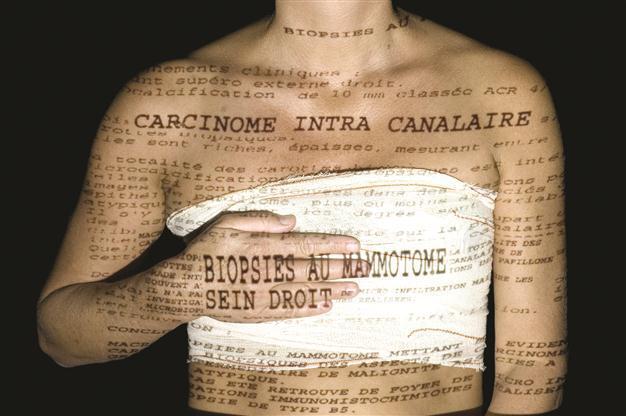Women's films to hit screens in March
ISTANBUL-Hürriyet Daily News

The festival will celebrate its 10th anniversary with over 70 movies from more than 20 countries, international guests, theme sections, mass screenings, panels, conferences and workshops.
The International Filmmor Women’s Films Festival on Wheels will kick off March 9 with an opening ceremony to be held at Istanbul’s Pera Museum.
The festival’s program was announced by festival coordinator Melek Özman on Feb. 22 at a press conference at Büyük Londra Hotel.
The festival will run until March 19 in Istanbul and subsequently in Van in cooperation with the Van Women’s Association in spite of the prefabricated buildings and tent cities, in Yüksekova in cooperation with Yüksekova Women’s Association and in Çanakkale in cooperation with Çanakkale Association for the Support of Women’s Handicrafts.
The festival will celebrate its 10th anniversary with over 70 movies from more than 20 countries, international guests, theme sections, mass screenings, panels, conferences and workshops with its audience that has supported and attended the festival for 10 years.
It will bring together the movies of well-known feminist directors ranging from the movies of Alice Guy-Blache, who made the first fictional movie in the history of film, to Marleen Gorris in the special selection of the 100th anniversary of Feminist Film.
The festival guests will be women. Women make up half the world’s population but only 5 percent of the film industry. Due to their contribution to the formation of feminist film in the world and Turkey, the guests of Filmmor will be awarded at the opening ceremony.
The mass screening guest of the festival will be Belgian director Marie Mandy, who previously participated in the festival with Filming Desire.
Special sections of the Filmmor Festival Mandy’s mass screening will include the films “A Diary of Healing” in which the director, having found out that she had breast cancer, filmed the journey she had to make through the medical world as a part of her artistic and personal pursuits; “Artificial Uterus, Birth without Bodies,” which discusses the possibility of artificial uteruses, fabricating human babies outside of a woman’s body, that is, the discovery of a life-making machine; “Our Parents Are Gay and So is Life” that handles the story of the young who have gay parents and intend not to live like their parents; “Breasts also Started as a Small Thing,” which is a musical documentary that narrates estrogen and testosterone and shows how a 15-year-old who does not like his/her body that much copes with desire; and “Judith,” the story of a woman who goes between reality and dream.
One of the special sections at the festival in which Tunisian female directors will participate is film screenings of Tunisia titled “Tunisia’s Jasmines.”
Among the movies to be displayed in this section are “The Other Half of the Sky,” a 2007 film directed by Khaltom Bornaz, which narrates the story of Selim and Selime, fraternal twins, whose relationship with their widowed father is problematic; “The Trace,” a 1998 film directed by Nejia Ben Mabrouk, which reveals Tunusia’s patriarchal culture showing Sabra’s present life and childhood, aged 10. She loves her nation and culture but finds them suffocating; “Neither Allah, Nor Master!” a 2011 film directed by Nadia El Fani inquiring what if, for once, a Muslim country opted for a secular constitution whereas Tunisia, which initiated the wind of revolt, is once again a “laboratory country” for its outlook on religion while the Arab world enters an era of radical change; “The Season of Men,” a 2000 film directed by Moufilda Tlatli concerning the birth of Aziz, a boy expected after two girls, makes life difficult for Ayşe and Said.
Another film from Tunisian cinema will be screened under the title “Gender/Sex.”
Film focuses on struggle for freedom “365 Without 377,” a 2011 film directed by Adele Tulli, which narrates the story of the reality of living with LGBTQ-identifying people and their struggle for freedom; “Orchids: My Intersex Adventure,” an auto-biographical 2010 documentary of documentary filmmaker, Phoebe Hart, who comes clean on her journey of self-discovery to embrace her future and reconcile the past shame and family secrecy surrounding her intersex condition; “Through the Window,” a 2011 film directed by Chen Shumowitz, in which we witness the life of Yoni, torn between her great love and her family, when Yoni and Shira are seen kissing through the window of the family home by Yoni’s mother; and “Yoshiko& Yuriko,” a 2011 film directed by Sachi Homano, which narrates the passionate and deep relationship between editor Yoshika and popular writer Yuriko. During the closing ceremony of the festival that will be held at the Dutch Consulate General on March 19 the 4th Golden Okra Awards will be presented.
International Filmmor Women's Film Festival,
